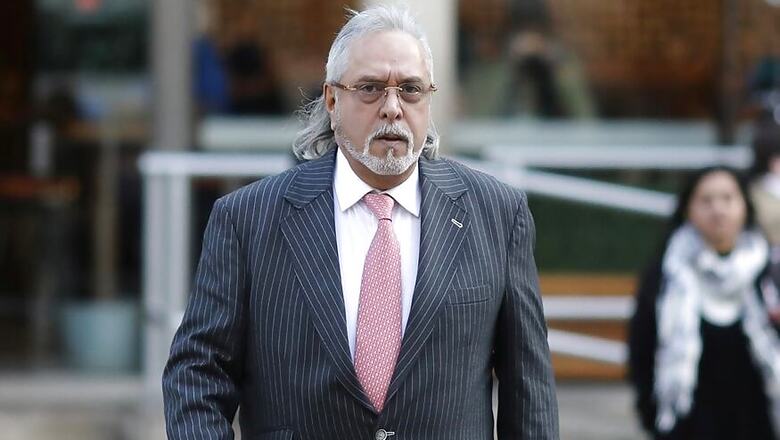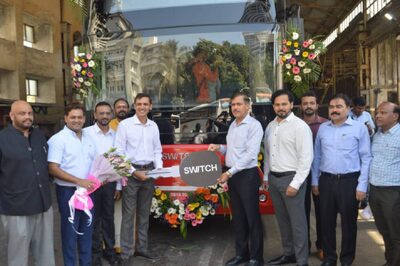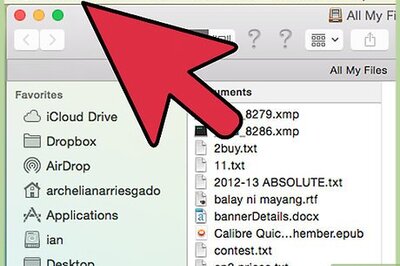
views
And so Vijay Mallya’s fight to stay on in Britain and to resist extradition to India is finally over. The High Court dismissed his appeal against extradition on Monday morning. That leaves Mallya with the theoretical – and only theoretical option of appealing to the Supreme Court in the UK and to the European Court of Human Rights. Both those moves would be non-starter, they could at most delay his return by a couple of weeks.
So past those processes before the Supreme Court and the European court – if at all Mallya chooses to dump yet more money into gaining a few more days in Britain – the Secretary of State in the UK government will pass an order to physically extradite him. Then on the Indian government will have to make arrangements to bring him back within 28 days.
This looks like early June for his flight to Mumbai. A lockdown due to the coronavirus pandemic could hardly delay that return. Like appeals possible before the Supreme Court and the European court, a return in a lockdown could add a couple of weeks of quarantine before his due move to a cell created especially for him within the Arthur Road jail in Mumbai that has been ready for him for some time.
If there’s a joker in the pack yet, it could be a PIL move in India seeking a declaration from a court that the creation of a relatively fancy jail within a jail for Mallya is unconstitutional. That is not expected to become an obstacle to his return though. Mallya should be comfortable enough in detention even though the Arthur Road jail could hardly hope to rival the 30-acre estate in Hertfordshire where he is currently staying. Among the facilities in the cell set up for him is a 40-inch television, but it’s unlikely in the current scenario that he will have much on himself to watch.
The High Court order passed by Lord Justice Irwin and Mrs Justice Elisabeth Laing was forthright in its verdict, which upheld the order passed earlier at the Westminster Court by Chief Magistrate Emma Arbuthnot. The High Court found conspiracy by Mallya’s Kingfisher Airlines, false representations, and deceit at several levels. It accepted the argument made by Mark Summers from the Crown Prosecution Service on behalf of the Indian government that Mallya’s company had offered “outrageous lies” to obtain bank loans.
The court listed the following reasons for dismissing Mallya’s appeal against extradition:
1. The three loans were disbursed as the result of a conspiracy between the named conspirators.
2. The loans were made despite KFA’s weak financials, negative net worth and low credit rating.
3. The loans were made despite the fact that KFA, as a new customer, did not meet the norms of IDBI’s Corporate Loans Policy.
4. The appellant was party to false representations to induce the loans that funds would be inducted by way of unsecured loans, global depository receipts and equity.
5. The appellant was party to false representations about inward investment, an exaggerated brand value, misleading growth forecasts, inconsistent business plans (including the January 2009 business plan).
6. The appellant was party to the offer of “symbolic” and “grossly inadequate security” in the form of a negative lien on 12 hire purchase aircraft, despite knowing that KFA would not get title to them during the period of the loan.
7. The appellant’s dishonest intention not to repay the loans is shown by his later conduct in trying to avoid the personal and corporate guarantees.
The language of the High Court was a little less colourful than that of the Westminster Court earlier. In ordering his extradition, Arbuthnot had noted that the banks that gave Mallya’s company the loans appeared to have been in “the thrall of this glamorous, flashy, famous, bejeweled, bodyguarded, ostensibly billionaire playboy” who “charmed and cajoled” them into parting with loans. She observed also that “a spell in custody is likely to help him cut down on alcohol”.
The final effective orders for Mallya’s return follow three years of court battles in London, almost to the day. He was arrested on behalf of the Indian government on April 18, 2017, but immediately released on bail. Nirav Modi was not so lucky – his bail application has been refused five times now, three times by the Westminster court and twice by the High Court. The hearings in his extradition case are due to begin on May 11.




















Comments
0 comment